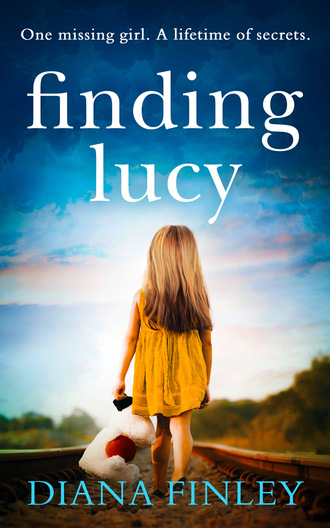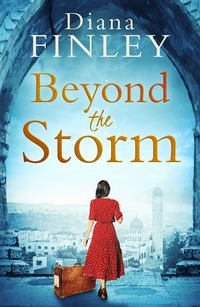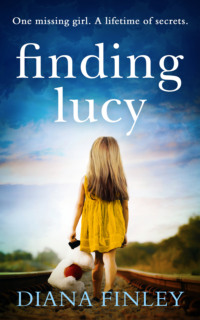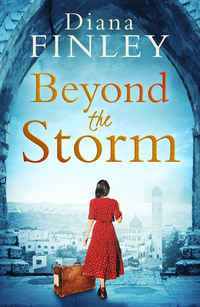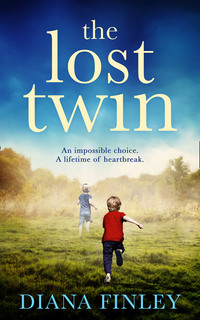‘I’ve got lots of friends.’
‘That’s good, Lucy. So, who do you like best? Who would you like to come and play with you here?’
She listed nearly all the children in the class. I found this response a little irritating, but tried hard not to show any impatience.
‘I’m glad you’ve got so many friends, Lucy, but can you think of one girl or boy you like best? Someone to come and play with you at home?’
‘I like to play with Stacy best.’
I was stunned. Instantly my hands began to tremble. It was as though Lucy had punched me hard in the stomach. I took a deep breath.
‘Lucy, Stacy is not real. She’s in your imagination. It’s like a … a dream, but not real.’
Lucy gazed back at me with her most inscrutable expression. I made a great effort to remain cool, not to show any trace of anxiety or irritation.
After yet further coaxing, still no special friend’s name was forthcoming, and Lucy was showing signs of becoming distressed by the conversation. In the end I had to avoid prolonging the questioning by deciding to make the choice of special playmate myself. I did this largely on the basis of which of the parents I liked best. After all, good parents tend to have good children.
We started with Laura. She was a dear little girl, thoughtful and solemn, with a mass of dark curls, contrasting with Lucy’s fair hair. I liked Laura’s mother Rosemary, who was a librarian. She was quiet and contemplative. Both girls shared a love of books. Yet they did not actually share the books. When I went upstairs to Lucy’s room to tell the children tea was ready, I found each girl sitting companionably on the floor cushions next to one another, leaning against the wall on the far side of the room, reading to herself. Not a word passed between them. Nevertheless, they seemed perfectly amicable and content.
From time to time we asked Charlie to play. I felt we had to – after all, he lived next door and Susan had been so kind to me, and regarded herself as a close friend. On her own, Lucy often enjoyed playing imaginative games with toy animals or figures – inventing elaborate scenes and stories. Charlie preferred lively games. His imagination focused on noisy vehicles, dinosaurs, fierce animals or monsters, fights, chases and crashes. A lot of shouting was involved.
Both Lucy and I were always quite exhausted by the time he went home. It was a relief to tidy up together at the end of the day. However, the tension Charlie’s company created had a noticeable effect on Lucy, and not a positive one. On one occasion, when he was being particularly loud, Lucy closed her eyes, put her hands over her ears and screwed up her face.
‘Stop shouting, Dad!’ she yelled.
The room seemed to still. Charlie stopped in his tracks. He glanced at me and raised his eyebrows in a knowing fashion, as if he and I shared some special understanding. I felt an urge to smack him. He turned back to Lucy.
‘I’m not your dad!’ he said laughing. ‘He’s dead, isn’t he?’
Poor Lucy looked at me in utter confusion, and burst into tears.
* * *
The following term Miss Carson called me in to school for a second time. Having had time to observe Lucy for some months, she said, she had some concerns about Lucy’s “social skills”. ‘Nothing to worry about, but we don’t want Lucy becoming isolated, do we?’ She was not unpopular, Miss Carson said. The other children liked her, but were unsure how to react to her. She often appeared indifferent to them, to live in her own little world. Miss Carson wondered if it would be helpful to refer her to a child psychologist. What would Lucy’s daddy and I feel about that?
Expected to respond spontaneously out of the blue, I hesitated for a moment, my hands trembling, and then explained to Miss Carson that Lucy’s father had passed away when Lucy was two. There was only Lucy and myself. Miss Carson looked profoundly shocked. Then she appeared to gather herself. She nodded in an understanding way, as if this news explained everything.
‘Oh, Mrs Brown, I’m so very sorry. If only you had made that clear to school when Lucy started, we could have … taken it into account.’
‘Yes, you’re right. Probably I should have told school staff sooner. But you see, it was so difficult dealing with my own bereavement at that stage, as well as Lucy’s. I … I could hardly bear to talk about it.’ I dabbed my eyes with my handkerchief.
‘No, I see, I do understand – how dreadful for you. I’m so, so sorry,’ she repeated. ‘It’s just that … if we had known, maybe we could have given Lucy some special help.’
‘She doesn’t need special help – all she needs is more time, more understanding. I will help her. I am helping her. She certainly doesn’t need to see a psychologist.’
‘No, of course not,’ Miss Carson said hastily. ‘I’m so sorry. Now that we do know … well … we can all help Lucy.’
* * *
Susan agreed with Miss Carson’s viewpoint.
‘Honestly, Alison, you’re so secretive. I can’t think why you didn’t tell her teacher before. They need to know about such important aspects of the children’s lives. They need to understand just how well Lucy’s done over the past year, considering what she’s been through.’ Susan grasped my hand.
‘After all, she’s had to make so many adjustments in her short life, hasn’t she? Losing her father, moving to a new city far from her previous home and family. And now, starting school – which is quite enough of an adjustment on its own for most children!’
‘Yes, perhaps I should have been more open about it. It’s just that … well, I suppose I am a very private person.’
Susan smiled, put her arm around me affectionately and hugged me. I steeled myself.
‘Aren’t you just, dear, Alison! A very private person.’ She looked at me thoughtfully.
‘You know, maybe you should talk to Lucy more about her daddy,’ she suggested. ‘Young children need lots of help to absorb such a huge loss; to understand death at all. Why not visit her grandparents – her paternal grandparents – so Lucy could learn more about her father from them? You could look at some photographs of him together.’ Her voice rose with enthusiasm as she expanded her theme.
‘What about making a memory box? Fill it with pictures and mementos, to help her remember and make her daddy more real for her? After all, she was so young when she lost him.’
Susan paused to allow me to absorb these wisdoms. She grasped both of my hands; I forced myself not to recoil and withdraw them. She peered into my face, as though a photograph of my dead “husband” might suddenly appear there.
‘You never talk about him either, Alison,’ she said. ‘I know it must be hard for you, but don’t you think it would help both of you to talk about him more?’
‘You’re probably right,’ I said slowly. ‘It was all so traumatic … I suppose I’ve tried to bury the memory, along with him. I must learn to be more open. But his parents, Lucy’s grandparents … well … er … unfortunately they live abroad … so we can’t visit them just yet.’
‘Oh, what a shame! Well maybe one day …’ She looked thoughtful. ‘Well, what about that aunt who looked after Lucy while you got the house ready just after you bought it? Was she your husband’s aunt? Might she help?’
Another unexpected hurdle to negotiate! I thought rapidly of a solution, and it had to be a final one.
‘No … I’m afraid not,’ I said, looking as sad as I could manage. ‘She was very old, poor thing, and she died not long after I moved up here.’
‘Oh no! How awful. Poor Alison, what a lot of bereavements you’ve had.’
How exhausting it was. I had never considered that maintaining a lie requires constant vigilance and effort. Just when you think you can relax and move on, suddenly a whole new chapter of the story is needed. I realised I was going to have to work on Lucy’s father. I had thought that killing him off would dispose of him conveniently once and for all, but now it was apparent I would have to invent much more of an identity, more of a presence, and even a family history for him, even though he was dead.
‘Do you know, Alison, I don’t think I even know what your poor husband’s name was,’ Susan said, as we sipped our coffee.
It was true – I had never given a thought to his name, and though I had filed it away in a drawer somewhere, I hadn’t given the father’s name on poor dead little Lucy Brown’s birth certificate a thought for so long! I closed my eyes for a moment and applied my mind to this supposed dead husband of mine. Desperately, I scanned my memory for his name. What was it again? Something a bit unusual, something connected with writers or philosophers. A series of rapid thoughts clicked through my brain. Was it Bertrand? No, that was too unusual, too odd … and yet Bertrand rang a bell. I know – Bertrand Russell – that was it! Russell. Russell was his name.
Susan, perhaps observing my mental struggle, assumed I was overcome with emotion. Once again she put an arm around me and hugged me affectionately. Why people seem to need to express friendship in this way I’ll never know. My whole body tensed.
‘Russell!’ I burst out. ‘His name was Russell. Russell Brown of course.’
‘Russell. Aaaah.’
Susan put her head on one side and adopted her sad, sympathetic face, as if there was something inherently endearing about the name Russell. Oh God, I thought, please let this conversation end.
Chapter Seventeen
1988
Just after half-term, chicken pox rampaged through the school. I had hoped Lucy might avoid it – she was one of the last children in her class to show symptoms. One afternoon, as I waited in the schoolyard with little groups of other parents, she emerged slowly, looking quite unlike her normal cheerful self. She was pale and listless, and dragged her schoolbag, as if she hadn’t the energy to carry it.
At home she wanted little to eat, which was unusual for her these days; she generally had a good appetite. I gave her plenty to drink, but all she really wanted was to sit on my lap and be cuddled. There was something very appealing about her in this state; her need for physical contact and affection was rather gratifying – and also a novelty for me, never having learned to enjoy cuddles myself, even as a young child. But I did enjoy cuddling Lucy. Lucy was different. I read stories to her until she became sleepy, and I put her to bed early. In the night I woke with a start to hear Lucy crying and calling out to me.
‘Mummy! Mummy!’
I ran into her room and clutched her hot little frame close. She was damp and trembling, sobs convulsing her body. Her eyes stared straight ahead.
‘Shhh, my darling,’ I said. ‘Everything’s all right, dear girl. Mummy’s here.’
‘Another Mummy was there! I saw her. She said, “Come with me.” She had a dark coat on and brown hair that came off! I’m frightened, Mummy, don’t let her take me!’
‘No one’s going to take you. It was just a dream. You’re safe with me, quite safe.’
I bathed her forehead with a cool flannel and gave her a spoonful of Calpol. Soon her breathing slowed and she slept. My heart was pounding. Did she remember? No, surely, it was just the fever? I was deeply unnerved. Unable to settle back to sleep, I went downstairs, and made some camomile tea.
I extracted Lucy’s crayon box from the toy cupboard, and tipped them out onto the floor. I spent half an hour arranging them in the shape of a rainbow on the carpet, their colours in the order of the spectrum. I counted them. There were forty-one altogether, a prime number, which was a bonus. After that I felt a bit calmer.
In the morning, Lucy’s spots started to appear – a few blisters scattered on her tummy at first, gradually multiplying to form a rash all over her body. She lay limp, vulnerable and dependent. I offered to bring her some breakfast, but she was only able to drink a little orange juice.
‘Poor little Lucy. My poor little girl.’ I stroked her head gently. ‘Never mind. I’ll look after you and you’ll soon be better. At least you can stay home with Mummy. No school this week. I’ll read you a story later. We’ll have a nice time.’
Lucy held my hand and smiled wanly.
‘How did you sleep, Lucy?’
‘All right, I think. But my head hurts.’
‘I know, dear. I’ll get you some more Calpol in a minute.’
I hesitated at the door. I turned and looked at Lucy.
‘Any dreams?’
‘No, I don’t think so. I can’t remember any.’
Chapter Eighteen
October 1989
Shelley
It’s our Stacy’s birthday. Seven years old today. Fancy, five years since she was took, five whole years. Hard to believe I’ve lived through those years, somehow – if you can call it living. I wake up each morning – not that I sleep much – and for just a second or two I wonder if it’s all been a dream, a nightmare. Even after five years.
And then I remember; I realise she’s gone, and it’s like a dark cloud wraps itself around me and works its way inside me. I want to pull the covers over me head and stay there in bed all day, block out the memories. But I can’t. I’ve got me other bairns to think of.
I think about Stacy; what she looks like now, where she is, what she might be doing. Is she somewhere near, or is she far away, is she happy or sad? More than anything, I think about who might be with her. A man, a woman, a whole family? Are they good to her, are they kind? I can’t bear to think they might be cruel, that they might hurt her.
My head starts to hurt and I go all hot and cold thinking about the person what took her. I fill up with such a rage it’s like I’ll explode. I have to press all that anger down inside meself so the kids don’t see it, and get back to thinking of Stacy and her little beautiful face. I think of her smiling, smiling and alive.
It’s never got no easier. Like a huge part of me’s missing; torn from me. An important part, like my heart. I seen a film once, one of them old Westerns. There was a big battle between the white men and the Indians. A Red Indian warrior stuck his knife in a white man; I think he was a General. He stuck his knife in the man’s chest and he tore out his heart and held it up, still beating and dripping blood. That’s how it feels for me. Someone’s torn me heart out. Only it happens over and over, every day. I never knew anyone could feel pain like this.
’Til I lost Stacy I never really knew how important the kids were to me. I’d had Leanne and Dean that young, and never really had a proper mam or dad meself. Nobody to show me what to do, how to look after meself, let alone a kid. I found out the hard way, that’s for sure. I love all my kids, but Stacy – she was the baby, the last one. I got the operation done on me tubes after she was born. There won’t be no more, ever. I miss her something terrible. There’s no words to say how much I miss her.
Our Ryan’s never been the same since Stacy went missing neither. Started off crying and crying; waking in the night, and looking for her, searching for her like a little lost soul, bless him. Then the temper started; yelling at me and his dad, like he blamed us for not looking after our Stacy properly. Well he was right, an’ all. I blame meself. I should’a watched her. The papers called me a slag, a useless mother, a heartless bitch, you name it – for letting a two-year-old play out alone. Well, I thought Ryan was with her, but I know I can’t use that as no excuse.
I cried for Stacy every day – I was worse than Ryan. And for a time I took to the drink, I was that stressed. Anything to blunt my feelings. Gary didn’t seem to have no feelings; his feelings was dead. He said she was gone and that was that; we had to accept it, get used to it. He’d always drank and took the drugs anyway, he didn’t need no excuse. So when he got arrested for dealing – again – I could’a killed him. Just a few months after our Stacy went missing. Then not long after, he got done for breaking and entering – he got two years. Well, course he needed the money for his habit, didn’t he? It’s not like me and the kids saw none of it.
That was the last straw though. The social said we weren’t responsible parents. They were right an’ all. Me eldest two, Dean and Leanne, had got took off us three years before Stacy went missing. They’d been in care all that time. Then the social took the rest of the bairns into care, all of them. So I was on me own. How much worse could life get? The papers made a right meal of it, ’specially the local paper.
Everybody on the estate knew about us. They hated us. People called me names if I went out. Some spat at me. They put dog shit through the letterbox. One night someone threw a brick through the back window. Smashed it into thousands of pieces. I was scared all the time. I was shaking.
I asked the doctor for some pills, to calm me down, like, help me sleep. He shook his head. He patted me hand. I think he reckoned I’d take the lot, top meself, and probably he wasn’t far wrong. He was all right with me though, was Dr Shah. He listened to me troubles. Said he wouldn’t give me no pills, but he could try to help me get me children back. If I really wanted them. It might take time, he said. I’d have to decide to really work at making a proper home for them. With Gary gone it was my chance, he said. It would be hard. What did I want?
Well, of course I said I wanted them back. He said for a start he’d write to the council – ask them to re-house me in a different part of the town, where people didn’t know us. He told me to go back to the social and cooperate with whatever they asked me to do. He even helped me get a part-time job as a cleaner at the hospital. It didn’t pay much, but it was something, a start.
The social worker suggested a counselling course. Counselling! I didn’t even know what the word meant, but I went on it. Then she suggested a “parenting skills” course – anyone could see I needed it – so I went on that an’ all. I even went on an “everyday cooking” course – I reckon they thought we’d lived on chips long enough.
I applied for getting each of the children back, one by one, starting with Ryan – he was that needy. It was dead hard and it took a long, long time, like Dr Shah said, but I managed it in the end. Even when they were back, it wasn’t all plain sailing. Ryan was playing up at school. They said he had behaviour problems. I sat him down and asked him if he wanted to go back in care. He shook his head and looked at his feet.
I told him I didn’t neither; I told him I couldn’t bear to lose him. I’d lost one precious child and I didn’t want to lose another. If he carried on misbehaving, I told him, they’d put him back in care, and that would kill me. He cried, and hugged me, and promised to be a good boy. He really tried, and after a while he started doing all right at school.
The next ones I got back was Dean and Leanne, the eldest two. That wasn’t easy, I can tell you. They’d been in care for that long they hardly knew us. They didn’t trust no one, ’specially not me. They were that angry and disturbed, they nearly took the house apart. It was tough. Time was, I was nearly ready to put them back with the social. But I told them I’d never let them go again, so they might as well put up with me.
Things settled down after a while. They all began going to school regularly. Any sign of bunking off, they had me to answer to. I told them I wasn’t going to let them follow the same road I had, and certainly not their dad. Once they were properly settled, Dean and Leanne turned out to be me rocks, me right little helpers. Then, one by one, the rest came home. We were quite a crowd. Only Stacy missing. Always Stacy missing.
The council give us a house in Moorside. It was a right mess to start with, even though the area seemed posh to me, what with being semi-detacheds, trees along the streets, and little gardens at the back. God knows who was in the house before us. It was filthy, and we had no carpets, no furniture; nothing to start with. The social worker – Michelle they called her – helped us get some beds and other basics from a charity. Me and Leanne scrubbed the place from top to bottom. After that I made sure to keep the house clean. I was always scared of an unexpected visit from the social.
Leanne was a good support, bless her. She did housework and kept an eye on the younger kids if I was working on a late shift. Dean cleared all the rubbish out of the garden and got busy with a paintbrush inside – he didn’t need no asking.
Ashley always had her face stuck in a book and her head in the clouds, so she wasn’t much help, but at least she was no trouble. Kelly and Sean did everything together – they liked to cook the tea sometimes – simple stuff like jacket potatoes and baked beans, sausages and that. I made them all eat vegetables too, even though I wasn’t that keen on them meself – cabbage, sprouts, cauliflower and that. Eat them, they’re good for you, I told them.
Once the kids were all back with me, we decided that every year, on Stacy’s birthday, I’d make a cake and we’d have a bit of a party. Well, the first few were bought cakes from Safeways – ’til I learned how to make one. The first one I made was a bit hard on the outside and soft in the middle, but the kids didn’t seem to mind at all.
So each year, we light the candles and sing “Happy Birthday dear Stacy”. The idea is it helps to take our minds off all the sadness. ’Course it doesn’t really. But that’s what we’ll be doing tonight, when the kids are all home. Her cake’s chocolate this year: the kids’ favourite. It has seven candles on, and a big number seven in Smarties – Ryan done that. It breaks my heart that she’s not here with us all to see it. Stacy, baby, I long for you every day, every minute. We’ll never, never, ever forget you. Will we ever see you again?
I’ve got to believe we will. One day.
Конец ознакомительного фрагмента.
Текст предоставлен ООО «ЛитРес».
Прочитайте эту книгу целиком, купив полную легальную версию на ЛитРес.
Безопасно оплатить книгу можно банковской картой Visa, MasterCard, Maestro, со счета мобильного телефона, с платежного терминала, в салоне МТС или Связной, через PayPal, WebMoney, Яндекс.Деньги, QIWI Кошелек, бонусными картами или другим удобным Вам способом.


